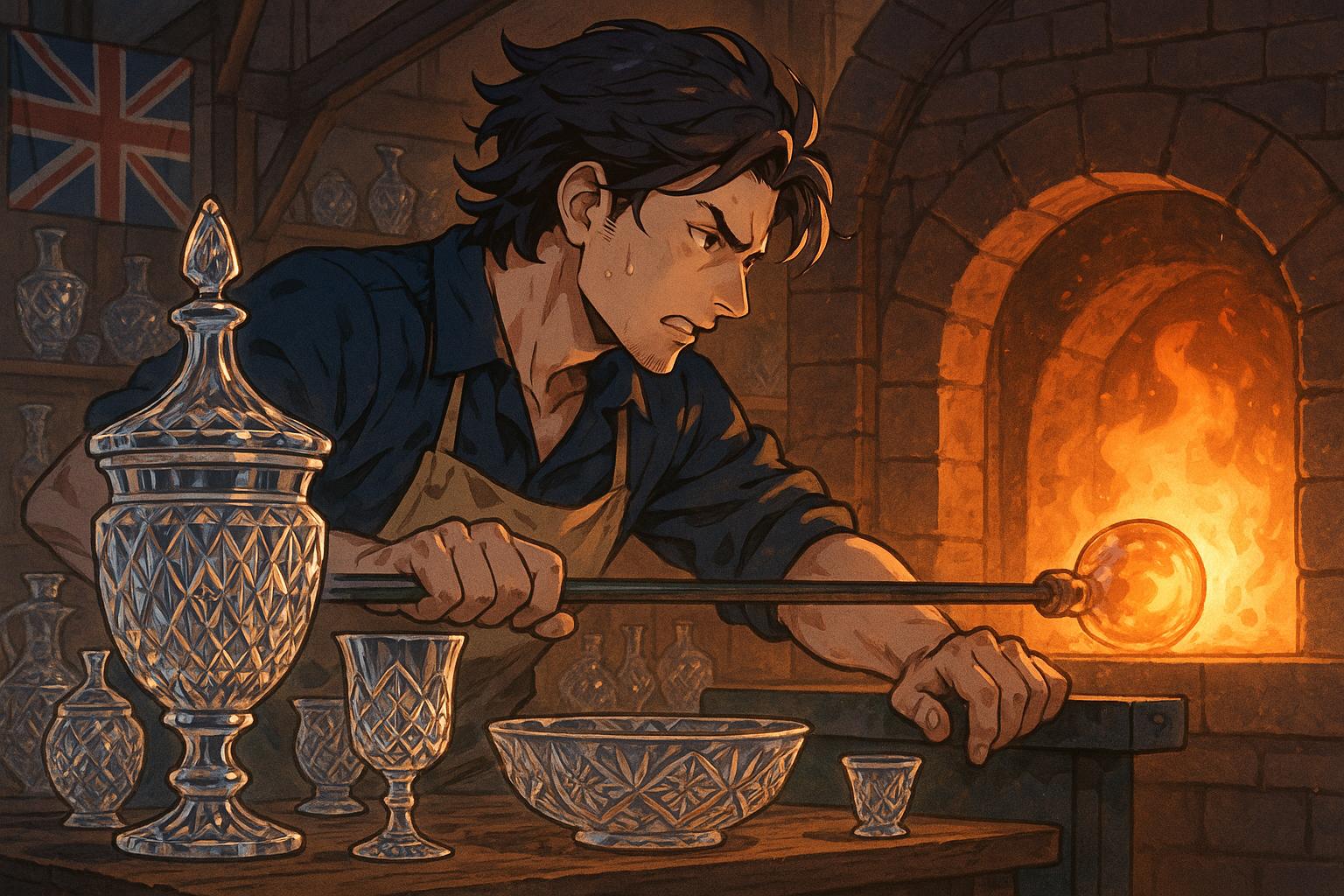The plight of heritage craftsmanship in the UK has reached critical levels, as traditional artisans voice urgent calls for government intervention to safeguard their industries. Cumbria Crystal, the last luxury crystal manufacturer in the country, exemplifies the challenges faced by this sector. Established in Ulverston, the company has provided exquisite crystal products for James Bond films and esteemed clients like Bentley Motors and various British embassies. However, CEO Chris Blade reports a staggering 280 per cent increase in energy costs since November, forcing the company to operate at just 50 per cent capacity.
Blade articulated the precarious situation during an interview, highlighting how costs have escalated from approximately £9,000 to £24,000 a month for gas alone. This sharp rise has compelled Cumbria Crystal to shut down one of their two furnaces, directly impacting production capabilities. The company not only crafts glass but also serves as a guardian of traditional skills in an era increasingly dominated by mass production and cheaper foreign alternatives.
The Heritage Crafts Association (HCA) has recognised the peril facing skills like crystal glass-cutting, which has been added to their 'Critically Endangered' list. As of the latest update, there are only eight to ten full-time professional crystal glass-cutters remaining in the UK, three of whom work for Cumbria Crystal. The survival of such crafts is jeopardised by a combination of rising operational costs, shifts in consumer interest, and inadequate training opportunities for the next generation of artisans.
The HCA's recent research has further illuminated these challenges, revealing that traditional crafts face heightened risks due to the combined effects of inflation, Brexit-related complications, and the pandemic's fallout. The Red List of Endangered Crafts, first published in 2017, now features 259 crafts at varying levels of risk, with 17 new additions since the last update. Among these, crafts like straw hat making and historic stained glass window production have found themselves on the brink of extinction, underscoring the urgent need for structured training and financial support.
Commenting on the broader implications, Blade contends that there is a lack of awareness from government officials regarding the precarious position of small businesses. He expressed frustration over insufficient support, stating that smaller entities are often neglected in favour of larger firms during policy discussions. Without intervention, Blade warns, not only will the company struggle for survival, but so too will the unique heritage of craftsmanship that defines British culture.
Efforts are being made to secure the future of these crafts. Cumbria Crystal is actively engaging with educational initiatives by offering training for master’s and PhD students in glass design and cutting. In another proactive measure, they have introduced 'glassblowing experiences' for the public, seeking to generate interest and revenue while fostering skills among a new generation.
Mary Lewis, leading the examination of the Heritage Crafts' research, emphasised the need for immediate action, noting that many crafts could vanish within a generation if current trends continue. She underscored the importance of public engagement and government support in preserving these irreplaceable cultural elements.
As Cumbria Crystal and similar artisans navigate these turbulent waters, the call for focused apprenticeship funding and strategic governmental support becomes increasingly critical. Acknowledging that luxury items are not merely products but cultural artefacts, Blade advocates for a movement to prioritise British craftsmanship. The consensus is clear: without significant efforts to support these traditional skills, the exquisite artistry that has defined British heritage for centuries is at grave risk of disappearing forever.
Reference Map:
- Paragraph 1 – [1], [2]
- Paragraph 2 – [1], [5]
- Paragraph 3 – [3], [4]
- Paragraph 4 – [6]
- Paragraph 5 – [5], [6]
- Paragraph 6 – [1], [2], [5]
- Paragraph 7 – [1], [6]
- Paragraph 8 – [1]
Source: Noah Wire Services
